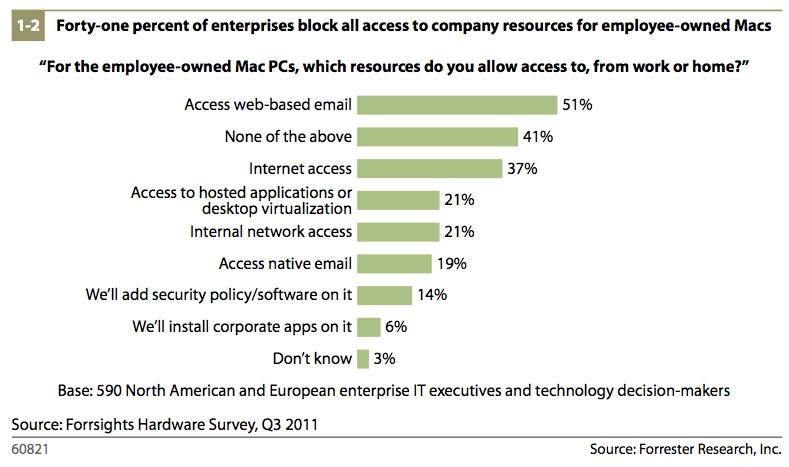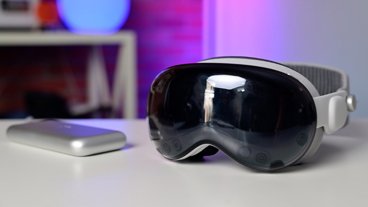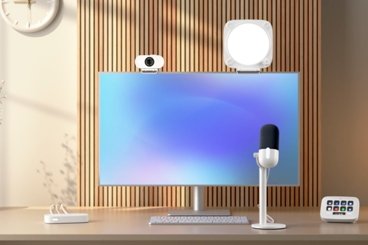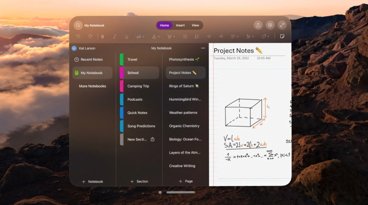Forrester: 'It's time to repeal prohibition' on Macs in the enterprise
Reversing a long-held stance against embracing the Mac in the enterprise, Forrester issued a new report on Thursday encouraging companies to take "decisive action" and support Mac use in the corporate world.
The report, authored by David K. Johnson and provided to AppleInsider, is available for sale from Forrester. Entitled "People are Bringing Macs to Work — It's Time to Repeal Prohibition," it reveals that Mac use in the enterprise is increasing, even though 41 percent of firms polled said they don't officially allow Mac use.
Forrester spoke with a number of companies who revealed that a "gray market" for Mac users has formed within their ranks. These employees share tips and strategies on how to use a Mac at work and bypass "corporate roadblocks."
Running with the prohibition theme, Johnson argues that Apple's retail Genius Bars are a modern-day speakeasy. Through Apple's support personnel and online forums, users continue to find ways to bypass company restrictions and use their Mac at work.
But because MacBook laptops from Apple tend to be more reliable and require less maintenance than their PC counterparts, Johnson said that Mac users are more productive in the workplace. Using a computer with Apple's high-end, premium components allows a device to perform well for longer, and the Mac OS X operating system is less susceptible to viruses and malware, which means workers waste less time trying to fix their machine.
Included in the report are a number of tips for IT professionals on how to best integrate Macs into an existing corporate network. Defining Mac users as "HEROes," or "highly empowered and resourceful operatives," Johnson believes that Mac users should be enabled rather than hindered.
Despite the evidence that formal corporate support for the Mac platform is not growing, Apple's sales in the enterprise have seen a huge spike in 2011. For example, in May Apple revealed that corporate mac sales grew by 66 percent, representing a significant turnaround for Apple.
The enterprise growth is noteworthy because between 2007 and 2009, Mac sales to businesses were stagnant, even as Mac sales to consumers were taking off. But over the last few years, Apple's figures have shown huge growth for the Mac in the enterprise.
And Apple has also made even greater inroads with its iOS line of devices. The company revealed this month that 93 percent of Fortune 500 companies are deploying or testing the iPhone, while 90 percent are doing the same for the iPad.
Bolstered by the "halo effect" of the iPhone, Mac sales are now bigger than they have ever been for Apple. Earlier this month, the company reported sales of 4.85 million Macs in a single quarter, representing the best three-month span in the company's entire history.
 AppleInsider Staff
AppleInsider Staff











 Malcolm Owen
Malcolm Owen
 William Gallagher and Mike Wuerthele
William Gallagher and Mike Wuerthele
 Christine McKee
Christine McKee
 William Gallagher
William Gallagher

 Marko Zivkovic
Marko Zivkovic









